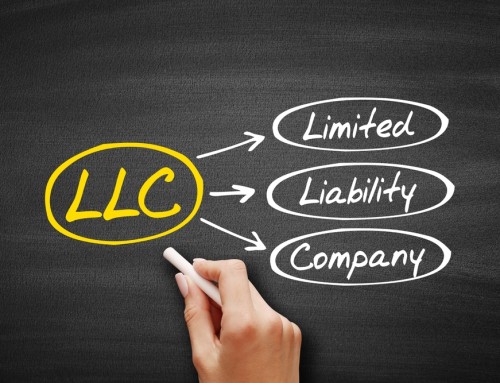Running a business comes with risks, and one of the biggest mistakes entrepreneurs make is failing to properly protect their assets. Without the right legal structure, everything you own—including your home, savings, and investments—could be at risk if your business is sued. That’s why forming and maintaining a Limited Liability Company (LLC) is one of the smartest decisions a business owner can make.
However, an LLC alone isn’t enough. If it’s not set up and operated correctly, courts can pierce the corporate veil, leaving your personal finances exposed. Additionally, business owners should consider adding insurance protection and utilizing multiple LLCs to protect valuable assets. Understanding these key aspects can help you secure your business, maintain financial stability, and avoid unnecessary legal risks.
This guide will cover the key reasons why an LLC is essential, how to properly maintain one, why insurance is your first line of defense, and how using multiple LLCs can help safeguard valuable business assets.
Why Every Business Owner Needs an LLC
An LLC acts as a protective barrier between your business and your personal assets. If your business is sued, only the assets owned by the LLC are at risk—your personal property remains protected. However, if you operate as a sole proprietorship without an LLC, there is no legal separation between you and your business. That means creditors and lawsuits can go after your personal wealth.
Consider this scenario:
You start a business without forming an LLC. A lawsuit arises, and because you’re operating as a sole proprietorship, the court can seize your personal assets to pay business debts. However, if your business is structured as an LLC, only the company’s assets can be targeted in a lawsuit, keeping your personal wealth safe.
Beyond legal protection, an LLC can also provide tax benefits and credibility to your business. Many clients and partners prefer working with structured businesses rather than sole proprietors, as it signals financial responsibility and stability.
What Happens If the Corporate Veil Is Pierced?
Many business owners assume that simply having an LLC is enough to protect them. However, if an LLC is not properly maintained, courts can pierce the corporate veil, removing the liability protection and holding business owners personally responsible for debts and legal claims.
A court may decide to pierce the corporate veil if:
- Business and personal finances are mixed. If you pay business expenses from your personal bank account or vice versa, you risk losing your liability protection.
- The business is not treated as a separate entity. If you fail to maintain corporate formalities, such as keeping proper records or signing contracts under the LLC’s name, courts may rule that your LLC is just an extension of you.
- The LLC is undercapitalized. If you don’t maintain sufficient funds in the business to cover liabilities, courts may determine that the LLC exists only to avoid personal liability.
- The LLC is used to commit fraud or wrongdoing. If a business owner deliberately misuses the LLC to hide assets or avoid debts, courts may disregard the LLC’s protection.
To protect your LLC status, always separate personal and business finances, maintain accurate records, and ensure the company is properly funded. Additionally, document major business decisions and make sure contracts, leases, and agreements are made in the LLC’s name, not your personal name.
Why Business Insurance Is Your First Line of Defense
While an LLC provides liability protection, business insurance serves as your first line of defense in the event of a lawsuit. Even if your LLC is properly maintained, a determined creditor can still take legal action. That’s why having adequate insurance coverage is crucial.
Insurance is the easiest way for a lawyer to collect on a claim, meaning creditors are more likely to pursue insurance payouts before attempting costly legal battles to seize business assets. Without insurance, your business could be left vulnerable, and you may have to pay legal settlements out of pocket.
A few types of insurance to consider for your business include:
- General Liability Insurance – Covers claims of bodily injury, property damage, and legal fees.
- Professional Liability Insurance – Protects against claims of negligence or errors in professional services.
- Commercial Property Insurance – Covers physical assets like office buildings, equipment, and inventory.
- Cyber Liability Insurance – Helps protect against data breaches and cyber threats.
While insurance needs vary by industry, the general rule is: the more protection you can get at a reasonable cost, the better. Work with an insurance agent to find the best policies for your business.
Using Multiple LLCs to Protect Valuable Assets
If your business owns valuable assets, such as real estate, intellectual property, or equipment, you may need more than just one LLC to fully protect them. Separating assets into different LLCs ensures that no single lawsuit can threaten everything your business owns.
For example:
- A manufacturing company owns a warehouse used for production. If the warehouse is owned by the same LLC as the manufacturing business, and a lawsuit arises from a defective product, the warehouse could be at risk.
- To protect the warehouse, the company creates a separate LLC that owns the warehouse and leases it back to the business. If a lawsuit is filed against the manufacturing company, the warehouse remains shielded.
The same strategy applies to intellectual property, trademarks, patents, and other high-value business assets. By placing different assets in separate LLCs, you limit your risk exposure and prevent a single legal claim from devastating your business.
Common Mistakes That Put Business Owners at Risk
Even with an LLC, simple mistakes can expose your business to liability. Here are some of the biggest errors business owners make:
- Mixing personal and business funds. Always maintain separate bank accounts for your LLC.
- Not keeping proper records. Keep track of business transactions, contracts, and tax filings.
- Failing to follow corporate formalities. Even LLCs need proper documentation and procedures.
- Underinsuring the business. Make sure your coverage is adequate for potential risks.
- Not structuring assets correctly. Valuable assets should be protected under separate LLCs when necessary.
By taking the right steps, you can maximize your LLC’s protection and safeguard your business and personal assets.
Protect Your Business with the Right Legal Strategy
An LLC is one of the best ways to shield your personal wealth from business liabilities, but it must be properly structured and maintained to be effective. From ensuring financial separation to securing the right insurance and using multiple LLCs for asset protection, taking proactive legal steps can mean the difference between security and financial disaster.
If you want to ensure your business is legally protected, consult with an attorney who understands LLCs, asset protection, and business law. At KEYTLaw, we help business owners create strong legal foundations that protect their hard-earned assets.






